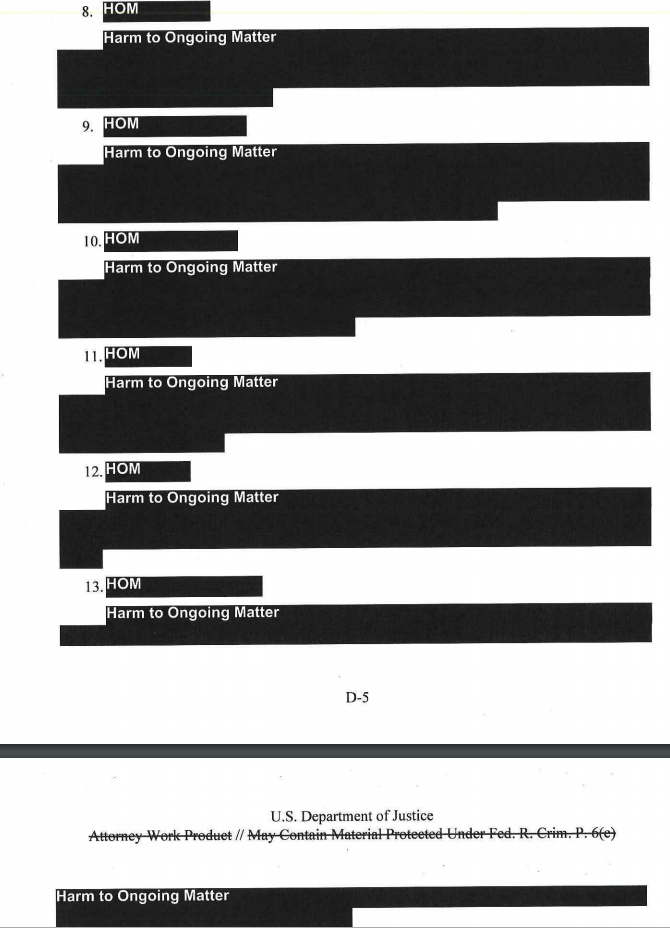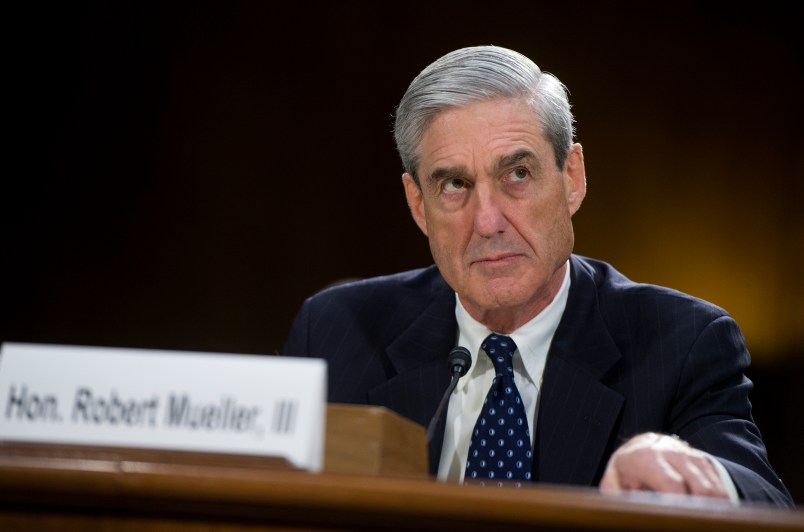Special counsel Robert Mueller referred 14 cases of potential criminal activity to outside offices because the cases were “outside the scope of the special counsel’s jurisdiction,” according to the Mueller report.
We know about two of them: Michael Cohen’s alleged wire fraud and Federal Employees’ Compensation Act violations case and ex-Obama administration official Gregory Craig’s alleged FARA violations. Both were referred to the Southern District of New York.
The other 12 referrals of potentially criminal evidence were all redacted for reasons of “harm to ongoing matter”
Cohen’s been a key player in Mueller’s probe for some time. As soon as Mueller took over the Russia investigation when former FBI Director James Comey was fired, the federal prosecutors set their sights on Cohen. Trump’s former fixer ultimately pleaded guilty to a slew of financial crimes, lying to Congress, and campaign finance violations related to his role in paying a porn star to keep quiet about an alleged affair with Trump. Cohen received a reduced sentence for cooperating with federal prosecutors.
Craig’s indictment came just last week when he was charged with making false statements to the Justice Department about his work for Ukraine and Paul Manafort. Craig’s case was initially referred to the SDNY, but was then transferred to federal prosecutors in D.C. Investigators believe Craig made false statements to the Justice Department about his work for a Ukrainian political party. The ex-Obama administration official argued in a video released after the indictment that he didn’t intentionally mislead the agency.
A redacted version of Mueller’s report was released on Thursday, just after Attorney General William Barr gave a befuddling press conference, painting the probe as a near victory for President Trump.
Among many other things, the Mueller redacted report revealed that Barr significantly misled Congress in his assessment of whether Trump obstructed justice. Barr claimed that Mueller’s team could not decide whether Trump had obstructed justice, leaving the decision up to the attorney general. Yet the report revealed that the special counsel’s office held back from offering a conclusion because they would not be able to charge Trump on obstruction due to the Justice Department opinion that sitting presidents could not be indicted. And the report crucially noted that if Mueller found clear evidence that Trump didn’t obstruct justice, he would’ve cleared him of it.
Additionally, while Muller did not find evidence that the Trump campaign intentionally worked with Russia in its efforts to influence the 2016 election, the behavior of witnesses tied to the Trump campaign “materially impaired” parts of the investigation.
The referrals, as they appear in Mueller’s report:







